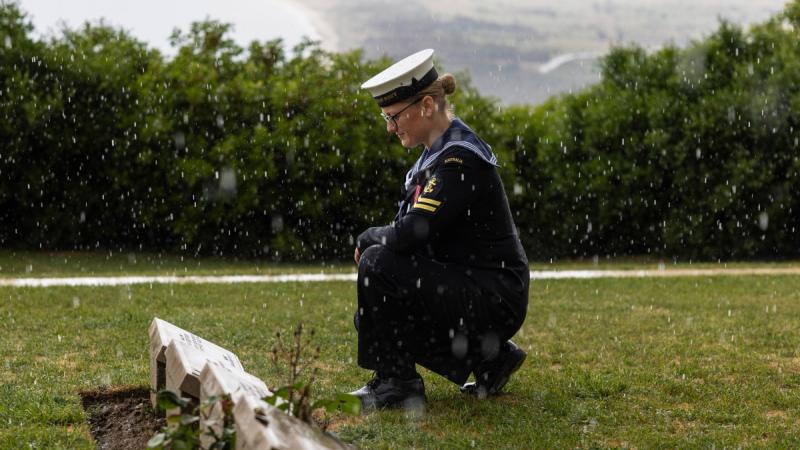The growth of Treaty of Waitangi clauses in legislation caused so much worry that a special oversight group was set up by the last government in a bid to get greater coherence in the public service on Treaty matters.
When ministers first considered the need for tighter oversight in 2021, there were at least 50 known Treaty clauses in legislation with about 14 variations in their description of the Crown’s obligations as a Treaty partner.
With a growing number of references to the Treaty in legislation and a growing variety of references, it was clearly becoming a legal quagmire for the constitutional relationship between the Crown and Māori.
The Cabinet established the Treaty Provisions Oversight Group (TPOG) of senior officials to act as a clearing house for new mentions of the Treaty after getting advice that “an incoherent approach creates a number of risks”.
The work and advice from the Treaty Provisions Oversight Group obtained by the Herald under the Official Information Act may be of value to the New Zealand First-driven review of existing Treaty principles in legislation later this term.
But what will be left of any new Treaty clauses to monitor is an open question because of a radical direction the coalition Government is taking already, ahead of the review.
It is no longer putting general Treaty clauses in legislation.
That became evident last week when the Fast-Track Approvals Bill was unveiled, which sets out a process for ministers to approve significant infrastructure projects. It did not have a general clause.
But leaving out a general Treaty clause is not a one-off, says New Zealand First’s Regional Development Minister Shane Jones, who helped Infrastructure Minister Chris Bishop to produce the bill. There will be no more general Treaty clauses in any new legislation, he said.
“If you look at the sentiment in the coalition agreement, it should come as no surprise to anyone that there is not and will not be any more generic open-ended Treaty clauses.”
That would apply to all legislation.
The Fast-Track bill has a clause giving protections to any current or future Treaty settlements and successful claims under foreshore and seabed laws.
But there is no general clause that has traditionally gone into bills impacting on the environment such as “This act shall be interpreted and administered so as to give effect to the principles of the Treaty of Waitangi” or “Nothing in this act shall permit the Crown to act in a manner that is inconsistent with the principles of the Treaty of Waitangi”.
The decision is clearly a political backlash against cumulative court decisions on Treaty-related issues and the introduction of a plethora of new and varied clauses in recent years.
“A generic ill-defined clause would have fed years of litigation and for those reasons we were not prepared to support a generic clause,” Jones told the Herald.
It was consistent with the coalition agreement to uphold the individual settlements and what rights of engagement those settlements might entail “but that’s where it ends”.
“We are not willing to perpetuate the situation where environmental legislation is a platform to argue all manner of constitutional/indigenous rights doctrinaire ambitions.”
He said he had been advised that the court would be more than likely to read the Treaty back into legislation of the future even if there was no general reference to it.
“But that is a different matter as to who ultimately holds power over these issues. Is it the court system or the parliamentary system?
“We realise that the individual settlement entities have a distinctive standing by dint of the full and final settlements but recognising that standing is quite different than embedding into legislation an ill-defined, limitless Treaty clause.”
When New Zealand First negotiated with National, it was very clear.
“We are traditional Westminister parliamentarians. Sovereignty rests with Parliament and we want to avoid a situation on Treaty matters where the rule of law is replaced by the rule of lawyers. We want the former, not the latter.”
Jones was aware of the work of Treaty Provisions Oversight Group (TPOG) in the last Labour government.
“I know that a number of senior ministers in the last regime were concerned about mission creep in terms of the Treaty clauses but we are going to deal with this very forcefully, as per the coalition agreement.”
He acknowledged that the work of TPOG would feed into the review of principles of the Treaty in law.
“All the analysis carried out over the last several years on the impact, the scope and the rationale for Treaty clauses will all be swept up in the review that New Zealand First put in the coalition agreement.”
In Opposition, Labour has been critical of the new Government’s approach to Māori issues, more particularly a proposed Act Party bill redefining the principles of the Treaty of Waitangi, the repeal of the Māori Health Authority, and moves to relegate Māori names of government agencies.
But the papers obtained by the Herald show that Labour in government also had worries about the Treaty in law and how it could impact the constitutional relationship between the Crown and Māori.
The aim of the Treaty Provisions Oversight Group was to work with government agencies whenever new provisions on Treaty issues were proposed. It attempted to narrow the types of clauses and to get agencies to question whether a Treaty clause was necessary before drafting legislation.
Its aim was to give greater consistency to clauses, to be clear about how the Treaty’s obligations could be met, and to reduce the risk of courts ruling on claims that the government was breaching its Treaty obligations.
“Treaty clauses impact on our understanding of the Treaty and its place in the legal system,” ministers were advised before setting up the oversight group.
“Treaty clauses are part of an ongoing constitutional dialogue … if there is no consistent framework for supporting well-considered references to the Treaty, the results will be unintended and uncertain.”
In another paper to ministers, TPOG said: “It is important to recognise the Treaty exists at a constitutional level and while it informs and shapes the development of legislation, it is not always appropriate to encapsulate the Treaty or the Treaty relationship in legal terms.”
The group produced guidance for public sector chief executives and 900 public sector legal advisers and set out advice on the Te Arawhiti website for public servants proposing new legislation.
Many politicians have said the principles of the Treaty have not been defined. They have, by courts, the Waitangi Tribunal and government – such as the principles of partnership, good faith, mutual recognition and respect, active protection of Māori taonga, participation, equity, reciprocity, redress, consultation and development – but they have not been specified in law.
Instead, many acts of Parliament require the people administering particular acts in all types of government services, including health, education and environmental matters, to uphold the principles of the Treaty of Waitangi or a variation on that.
Such general clauses are called “operative” clauses. Because of their sweeping nature, they apply to all decisions, by all decision-makers under that act.
The more preferred Treaty clauses are called “descriptive” clauses and they are more bespoke. They say specifically set out what the act is required to do to comply with the Treaty. But then they started to get out of hand under the last government.
According to the law drafters, the Parliamentary Counsel Office, there have been three distinct phases of the Treaty of Waitangi in legislation.
The operative clauses began in the 1980s, the descriptive clauses began in 2000 and the third phase began in about 2018.
From then, the number of Treaty clauses in bills had increased significantly, the clauses had diversified in nature and detail, meaning that coherency/consistency risks had grown.
What do the Coalition agreements with New Zealand First and Act say about the principles of the Treaty of Waitangi in legislation?
There are two distinct commitments. For New Zealand First, it is to: “Conduct a comprehensive review of all legislation (except when it is related to, or substantive to, existing full and final Treaty settlements) that includes ‘the Principles of the Treaty of Waitangi’ and replace all such references with specific words relating to the relevance and application of the Treaty, or repeal the references.”
For Act, the commitment is: “Introduce a Treaty Principles Bill based on existing Act policy and support it to a Select Committee as soon as practicable.” That bill is not expected to get support beyond the select committee. Act wants to rewrite the principles to say that: 1. The New Zealand Government has the right to govern New Zealand; 2. The New Zealand Government will protect all New Zealanders’ authority over their land and other property; 3. All New Zealanders are equal under the law, with the same rights and duties.
What was the trigger for setting up the Treaty Provisions Oversight Group?
There probably wasn’t a single one but it was a combination of public servants not giving too much thought to the wording of bills, concerns about an increasing variation in Treaty clauses, and judges surprising government with some of their interpretations of the law. One of an early memo from officials to former Treaty Negotiations Minister Andrew Little before an oral presentation to a cabinet committee says: “You may wish to highlight related context such as the High Court’s recent recourse to tikanga in the Edwards takutai moana decision.” That is a reference to a case in 2021 in which Justice Peter Churchman gave precedence to tikanga over other factors in the law in determining who should get customary title in the foreshore and seabed. In a later paper, TPOG said the Supreme Court decision Trans-Tasman Resources Ltd v Taranaki Whanganui Conservation Board had implications for how descriptive Treaty clauses were to be interpreted and how that would affect TPOG’s guidance.
Who is on the Treaty Provisions Oversight Group?
The leading agency is Te Arawhiti: the Office for Māori Crown Relations. It also includes Te Puni Kōkiri: the Ministry of Māori Development, the Ministry of Justice, Crown Law and law-drafters the Parliamentary Counsel Office.
Who did TPOG consult?
It consulted a range of government agencies and a group of Treaty experts including Dr David Williams, Dr Mark Hickford, Dr Carwyn Jones, and Te Huia Bill Hamilton.
Which ministers were overseeing their work?
Te Arawhiti Minister Kelvin Davis and Treaty Negotiations Minister Andrew Little jointly took papers to Cabinet and cabinet committees to set up the oversight group. Ministers such as former Attorney-General David Parker and former Māori Development Minister Willie Jackson were kept in the loop.
What are the 14 variations of the ‘operative’ Treaty clauses in legislation?
According to the advice officials gave ministers, by descending order of strength, they are: (in reference to the particular legislation) Honours the Treaty; Gives effect to; Takes into account; Provides a practical commitment to; Nothing permits inconsistency; Supports the Crown in its relationship with Māori, Upholds; Reflects the Crown’s responsibility under; Recognises and respects the Crown’s responsibility to provide for Maori interest; Has regard to; Acknowledges; Recognises the principles of; Encourages the spirit of partnership and; Discharges obligations under.”
What are some examples of ‘descriptive’ Treaty clauses?
The Education and Training Act 2020 – The main provisions of this act that recognise and respect the Crown’s responsibility to give effect to Te Tiriti o Waitangi are section 4 [for]… establishing and regulating an education system that honours Te Tiriti o Waitangi and supports Māori-Crown relationships; and … section 127(1)(d), … to ensure that the school gives effect to Te Tiriti o Waitangi…
Kainga Ora – Homes and Communities Act 2019 – In order to recognise and respect the Crown’s responsibility to consider and provide for Māori interests, this act provides … the board must ensure … [it] has the capability and capacity to uphold the Treaty of Waitangi (Te Tiriti o Waitangi) and its principles …
If having general Treaty clauses in legislation is so problematic, wouldn’t the problem go away if the clauses are not there?
No. While arguably, the “target” for litigants may be smaller, the absence of general Treaty clauses will not inoculate such laws against legal action claiming the government has breached the Treaty. Until the 1990s, references to the Treaty needed to be written into legislation before the courts would enforce any rights conferred by the Treaty. However, that no longer applies. Parliamentary law drafting experts have warned government for at least 20 years that the courts will assume that Parliament intended to legislate consistent with the Treaty, even if it is not mentioned in law.
How successful was the Treaty Provisions Oversight Group?
In a progress report to ministers last year, TPOG advised that while there had been greater consistency in approach since it had been set up “there continue to be unexplained inconsistencies in the exact wording of Treaty clauses”.
What will Labour’s position be on New Zealand First’s review of the Treaty clauses when it clearly had concerns about such clauses while in government?
Like most of Labour’s policy, that is yet to be determined.








